Interview: Melanie Arii Mah Honoring Her Forefathers with HEART
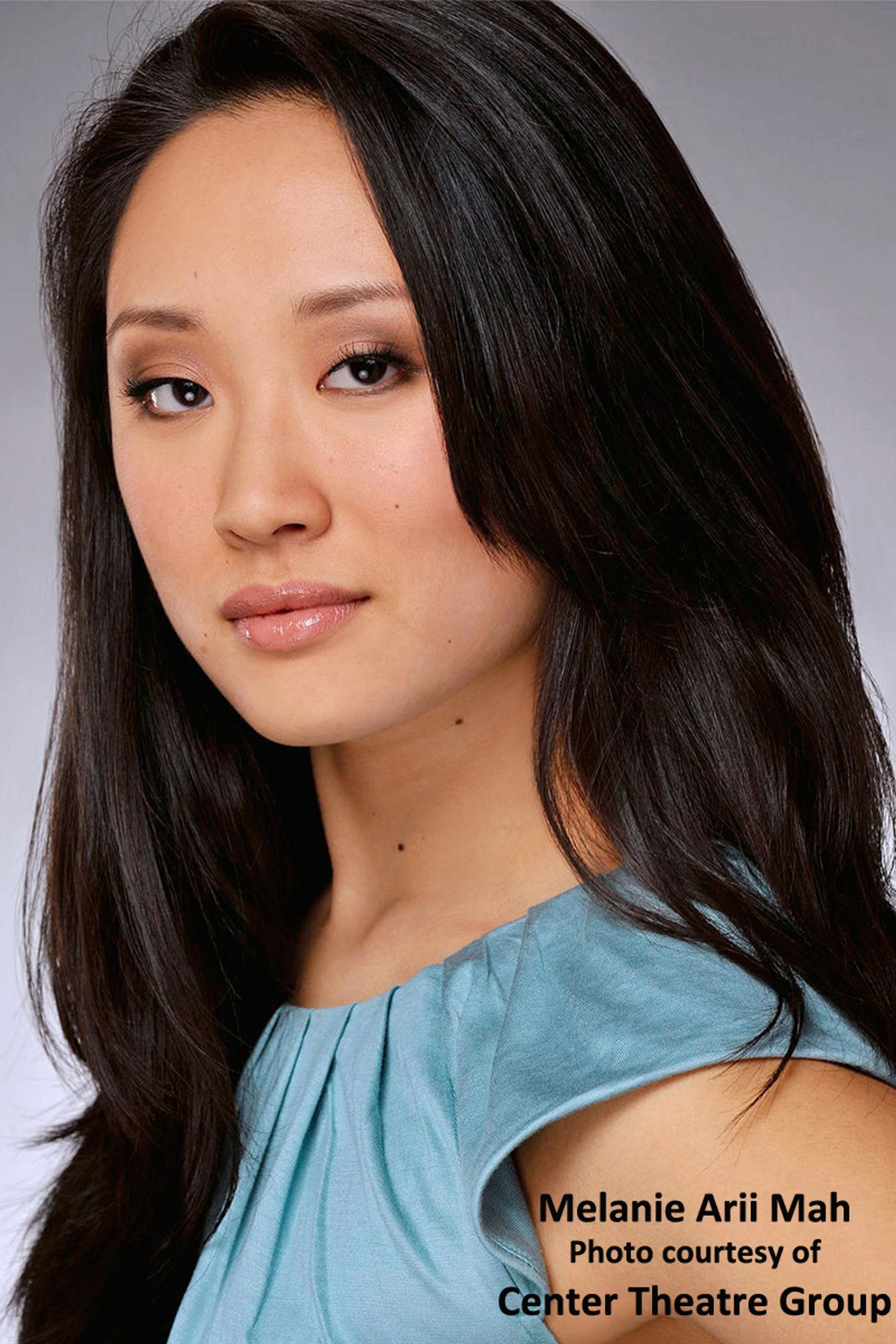
Luis Valdez' VALLEY OF THE HEART, currently at the Mark Taper Forum, vividly depicts the tale of two immigrant families (the Yamaguchis and the Montaños), both caught up in the aftermath of the attack on Pearl Harbor in the 1940s. Friends before the war, their oldest children, Teruko "Thelma" Yamaguchi and Ben Montaños, had secretly fallen in love, and now have to deal with the realities of family loyalties and the isolation of internment camps. I had the chance to question Melanie Arii Mah (who's playing Teruko) on her history with HEART, as well as, her personal family accounts during this tragic historical time.
Thank you for taking the time for this interview, Melanie!
What was your initial response to being cast to reprise the role of Teruko at the Taper?
My initial response to being asked back to play Teruko "Thelma" Yamaguchi was a mix of elation and slight shock. I couldn't believe that the teams at El Teatro Campesino and Center Theatre Group had bestowed this honor upon me. Then the happy tears began to flow.
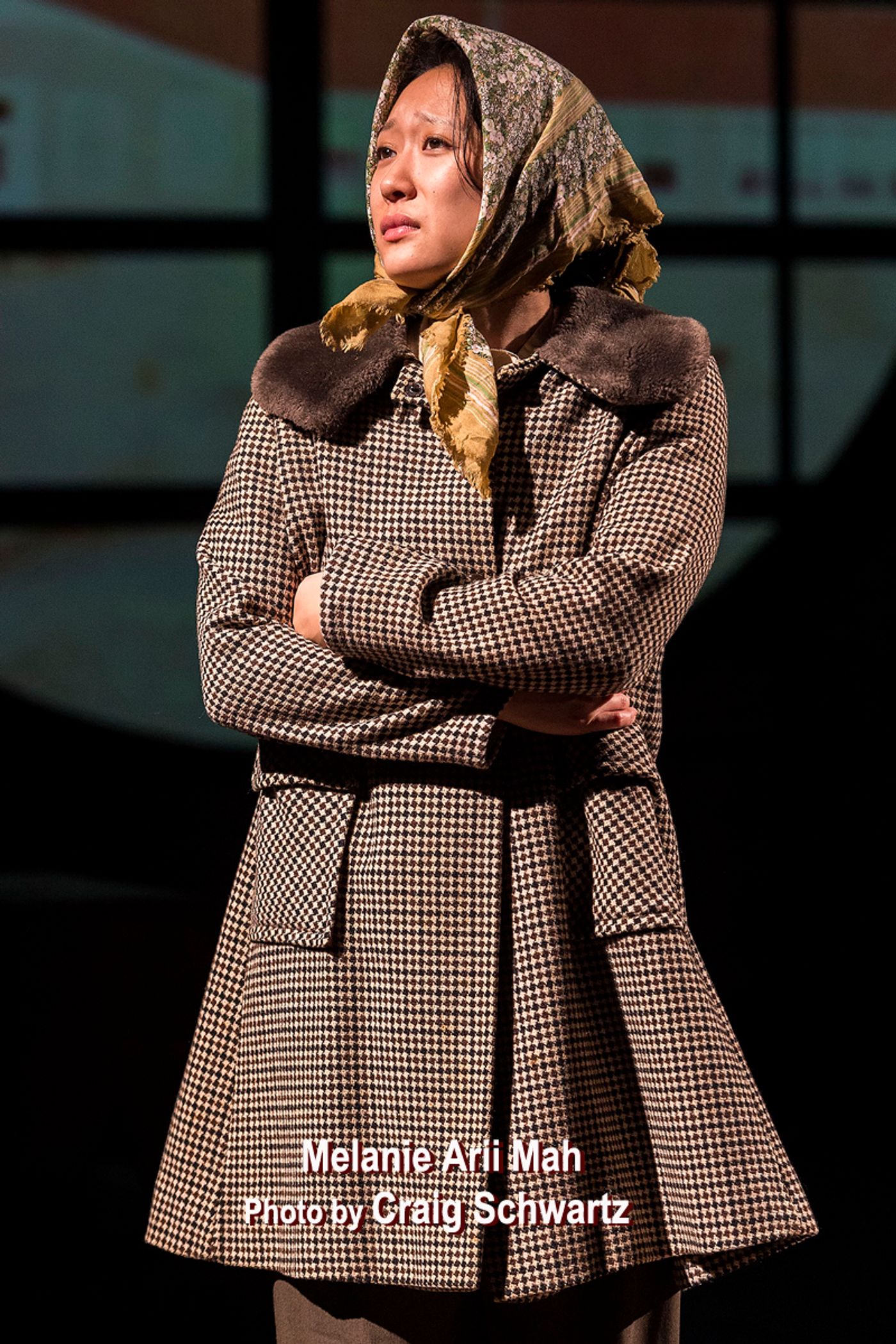 This is actually the third time you're portraying Teruko. How has your comfort level with or knowledge of Teruko transformed since the first production?
This is actually the third time you're portraying Teruko. How has your comfort level with or knowledge of Teruko transformed since the first production?
I will admit foremost that it is a luxury to have had four years to develop Teruko/Thelma and to continue to add layers and complexities to this character. My journey with and as Thelma will never be completely finished due to the fact that human beings evolve and change constantly, but at this point, I can adapt and listen to her which leads me to wonderful discoveries each time I perform. Thelma is my grandmother, my mother, and all of the women throughout our history who remain strong in the face of adversity and pain.
Do you and Lakin Valdez (who's also returning to play Teruko's love interest Ben) now have a short-hand in communicating your onstage relation?
Yes. One second of eye contact can gauge how the other is doing. Lakin knows how I work and accepts my habits and quirks.
If you were to describe VALLEY OF THE HEART in a one-sentence pitch, would you say it's the Japanese-American/Mexican-American version of ROMEO & JULIET?
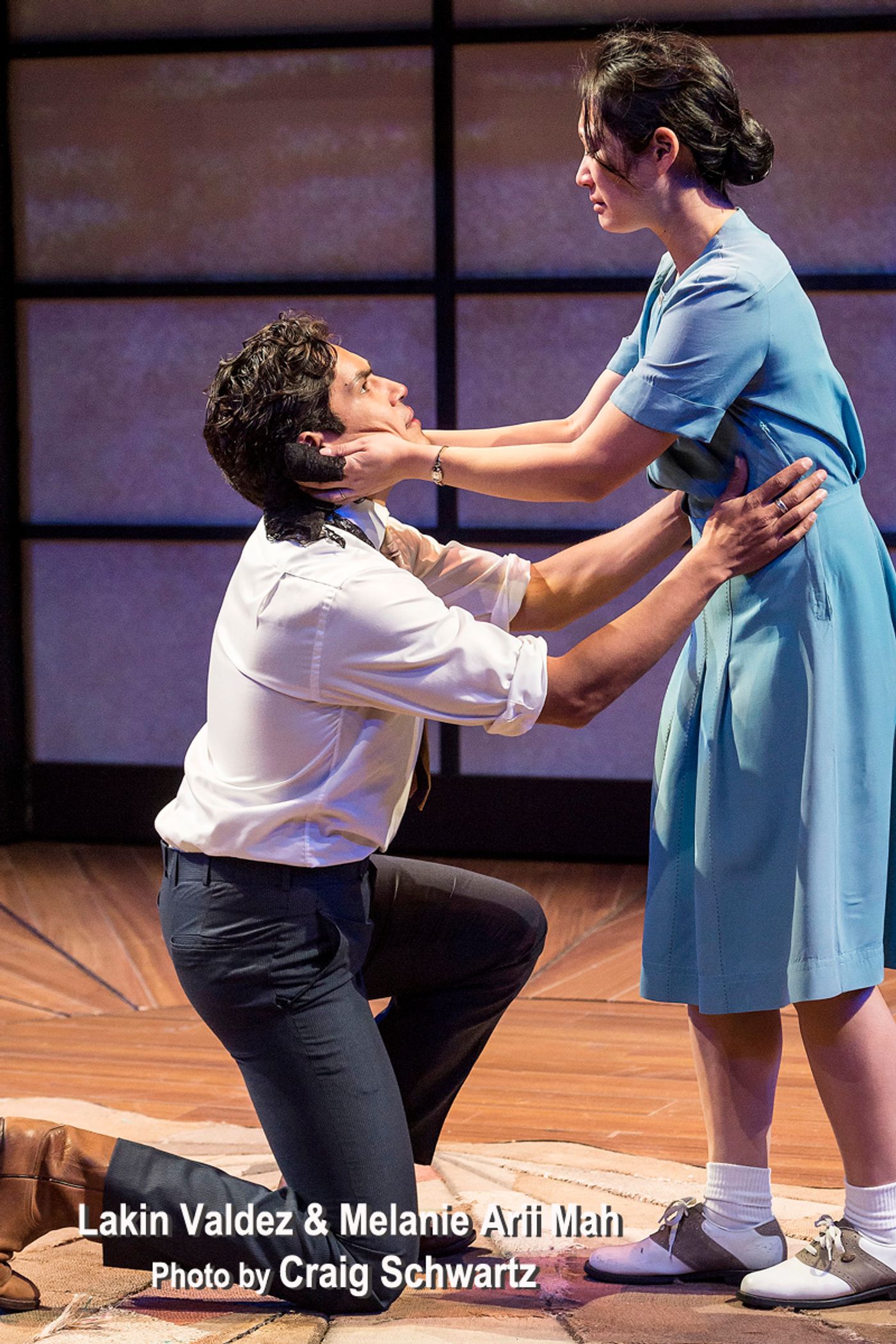 In short, I would have to say no. The two works differ in that the love story isn't complicated by a rivalry and animosity between two families; the two families are actually allies. Both families' cultures have been targeted as "enemies" in this country's history despite either earning the right to live freely in this country or being born American citizens. Ben and Thelma are an unconventional couple in that they have the internal struggle of following their hearts while remaining loyal to their families who have made sacrifices in order to provide a good life for future generations.
In short, I would have to say no. The two works differ in that the love story isn't complicated by a rivalry and animosity between two families; the two families are actually allies. Both families' cultures have been targeted as "enemies" in this country's history despite either earning the right to live freely in this country or being born American citizens. Ben and Thelma are an unconventional couple in that they have the internal struggle of following their hearts while remaining loyal to their families who have made sacrifices in order to provide a good life for future generations.
Though definitely different, some parallels there, agree?
I do agree that there is the parallel of a "forbidden love," and taking the chance of defying familial duties and societal expectations.
What originally sparked your interest in San Jose Stage Company and/or El Teatro Campesino?
I was in New York for the first production of VALLEY OF THE HEART in 2013. My aunt, who had seen the show, discovered in 2014 that the Teatro was recasting Thelma for the second San Juan Bautista run and called me immediately. I emailed them with my headshot and resume, and I was on a plane the next weekend to audition for Luis! Having the opportunity to reprise Thelma at the San Jose Stage was another gift that I was humbled to accept.
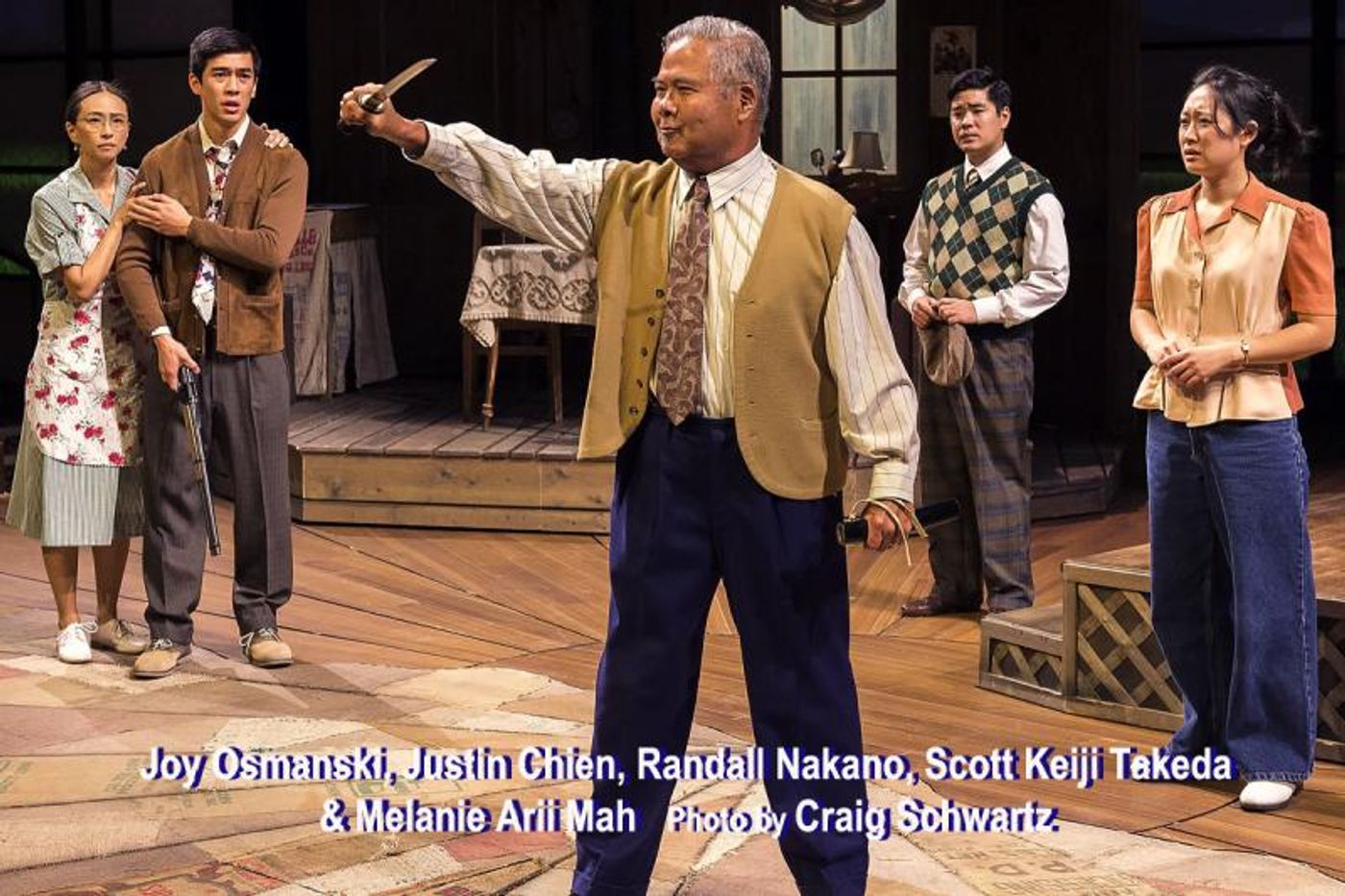 What other works of Luis Valdez are you familiar with?
What other works of Luis Valdez are you familiar with?
I studied ZOOT SUIT during my dramatic literature class in college and had done scene work on his short play LOS VENDIDOS. It was clear to me that Luis was crucial to the history of theater in that he was fearless in writing about the truth of humanity, whether good, bad or ugly.
What generation are you - Sansei or Yonsei?
I am Sansei. My late grandfather and grandmother were born in Martinez, CA and Winters, CA respectively. My late mother was born in the Santa Clara Valley and raised in Cupertino, CA.
Were your grandparents (Staff Sergeant Mamoru "Mum" Arii and his wife Mas) or any other of your relatives forced into internment camps?
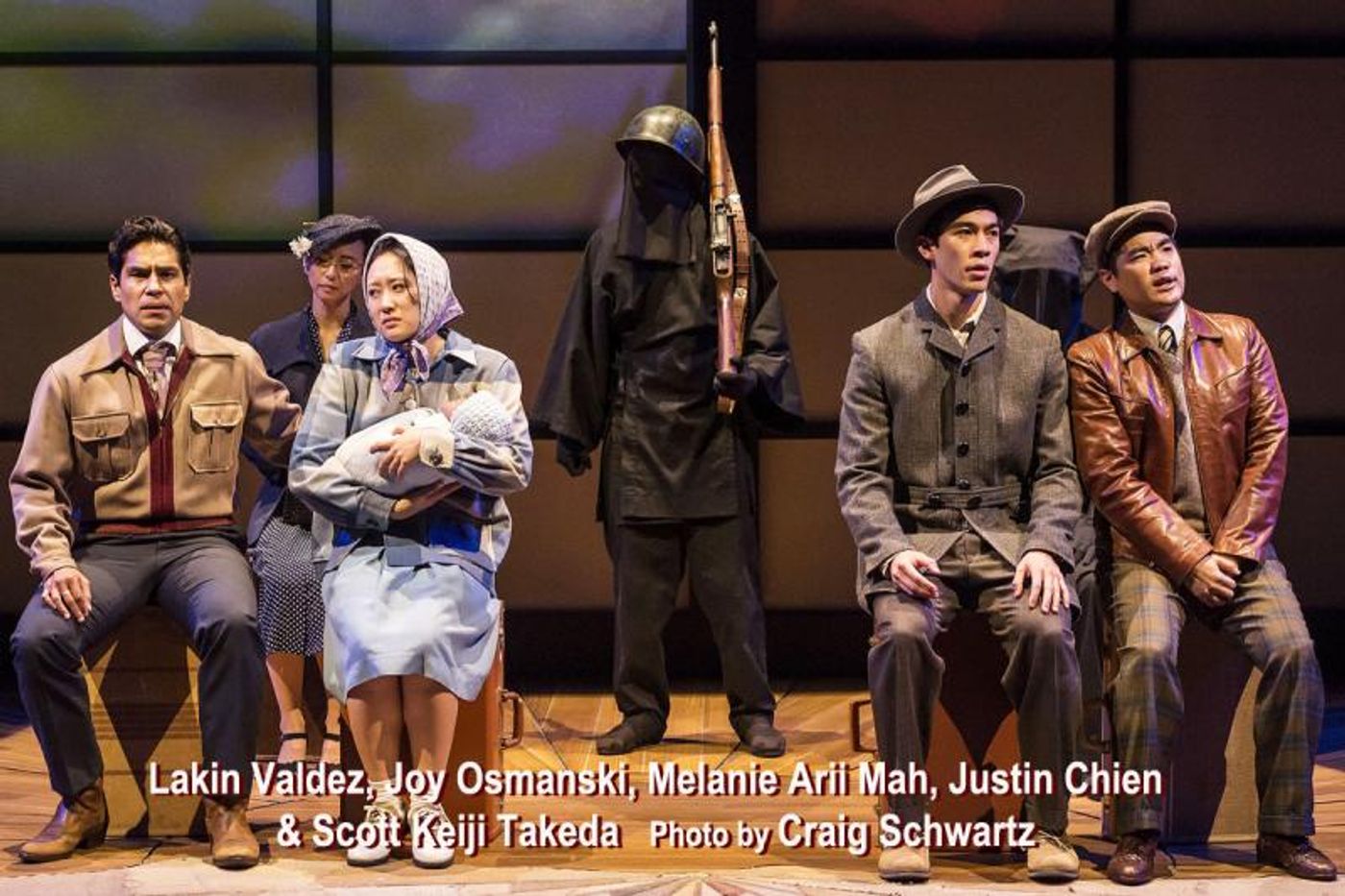 My grandparents actually met as teenagers and incarcerated individuals at the Gila River, AZ concentration camp. It is a mind bender when you reflect upon the fact that I am a product of their time in a concentration camp. All of my great grandparents were forced into camps, as well as, all of my grandparents' siblings with the exception of one; my grandfather's sister never went into a camp because her husband's family hid her throughout WWII in their cellar. They did not support the treatment of her family and her people. They took a huge risk in caring for her.
My grandparents actually met as teenagers and incarcerated individuals at the Gila River, AZ concentration camp. It is a mind bender when you reflect upon the fact that I am a product of their time in a concentration camp. All of my great grandparents were forced into camps, as well as, all of my grandparents' siblings with the exception of one; my grandfather's sister never went into a camp because her husband's family hid her throughout WWII in their cellar. They did not support the treatment of her family and her people. They took a huge risk in caring for her.
Was it your mom, esteemed buyo dance performer Mary Arii Mah, (a.k.a. Bando Misayasu) who inspired you to take dance lessons?
I was taken to my first dance lesson by my mom when I was three years old. I had no idea what to expect as my mom dressed me in my yukata and instructed me on how to introduce myself to my teacher, the late Bando Mitsusa. I danced consistently until high school when my schedule became more demanding. I was always aware that my family had artistic tendencies, but I didn't understand the important of preserving my unique Japanese culture and heritage through dance until I was a young adult.
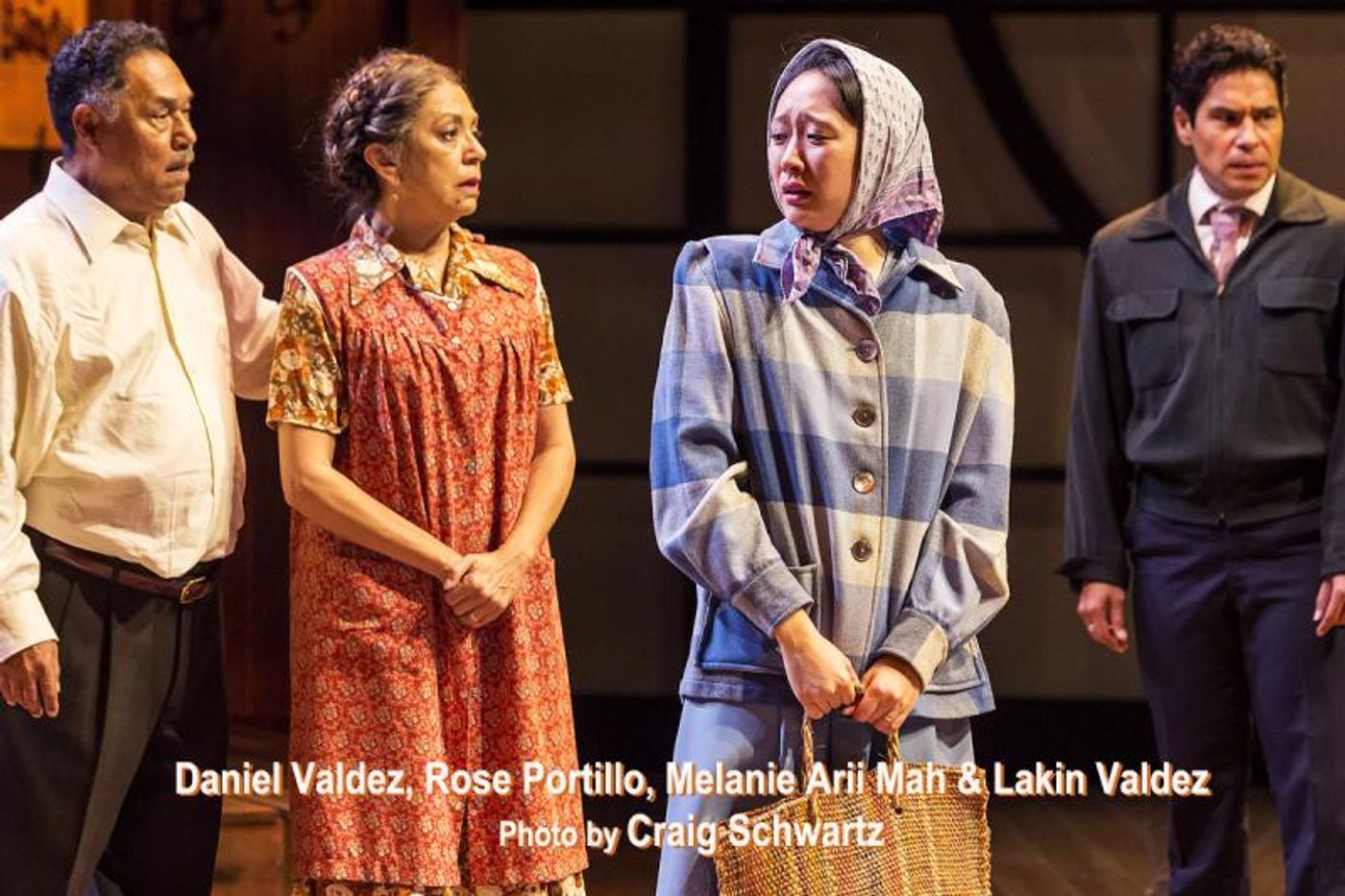 Did you take buyo lessons from her?
Did you take buyo lessons from her?
I never had the opportunity to take buyo dance lessons from my mom. She received her dance degree and title, her "natori," in Japan in the 1970s, but did not receive her teaching degree until I was in college on the East Coast.
Having one of your parents in the performing arts must have made it easier for you to tell them you wanted to also be a performer, right?
I was extremely lucky in that both of my parents fully supported my decision to be an actor. My father was a doctor and my mother was a legal secretary for twenty years. Throughout my upbringing, there was never pressure to adhere to any specific career path. I was told that I could be anything I wanted to be as long as I was dedicated and passionate. I am thankful that I was encouraged to follow my curiosities and wouldn't be here had my late parents not been the incredible people they were and are in spirit.
How old were you when you realized our performing ambitions?
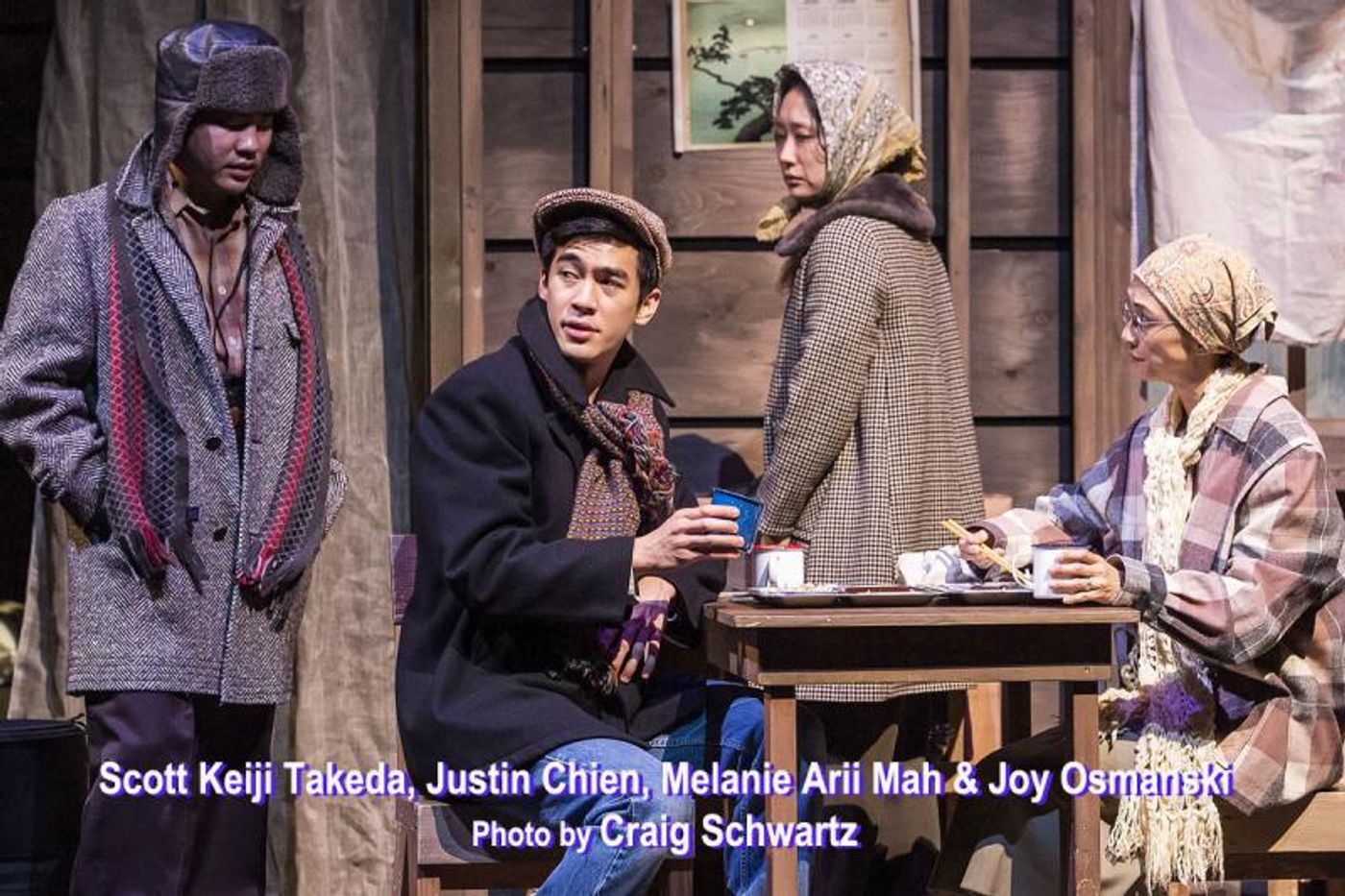 I didn't pursue theater, or think that I could have a career as an actor until high school. I bounced from ballet to swimming to horseback riding since I was a child, and honestly thought I would pursue a career in law or psychology. The moment that changed everything was during sophomore year when our acting teacher told me to audition for the fall play. I had literally done one musical in my life at that point, and didn't think I could pull off an actual play. I was cast. It was that same teacher, Cliff Mayotte, who encouraged me to audition for collegiate BFA programs.
I didn't pursue theater, or think that I could have a career as an actor until high school. I bounced from ballet to swimming to horseback riding since I was a child, and honestly thought I would pursue a career in law or psychology. The moment that changed everything was during sophomore year when our acting teacher told me to audition for the fall play. I had literally done one musical in my life at that point, and didn't think I could pull off an actual play. I was cast. It was that same teacher, Cliff Mayotte, who encouraged me to audition for collegiate BFA programs.
What advice or piece of your mother's performing wisdom do you adhere to, to this day?
Do anything you want to in life, but put your heart and soul into your choice and never stop striving to be better each and every day.
You've attended San Francisco Conservatory of Music, London Academy of Music and Dramatic Art, and earned your BFA from Boston University School of Theater. What similarities of teaching techniques and dissimilarities of approaches did you find in the three distinctly diverse-cultured schools?
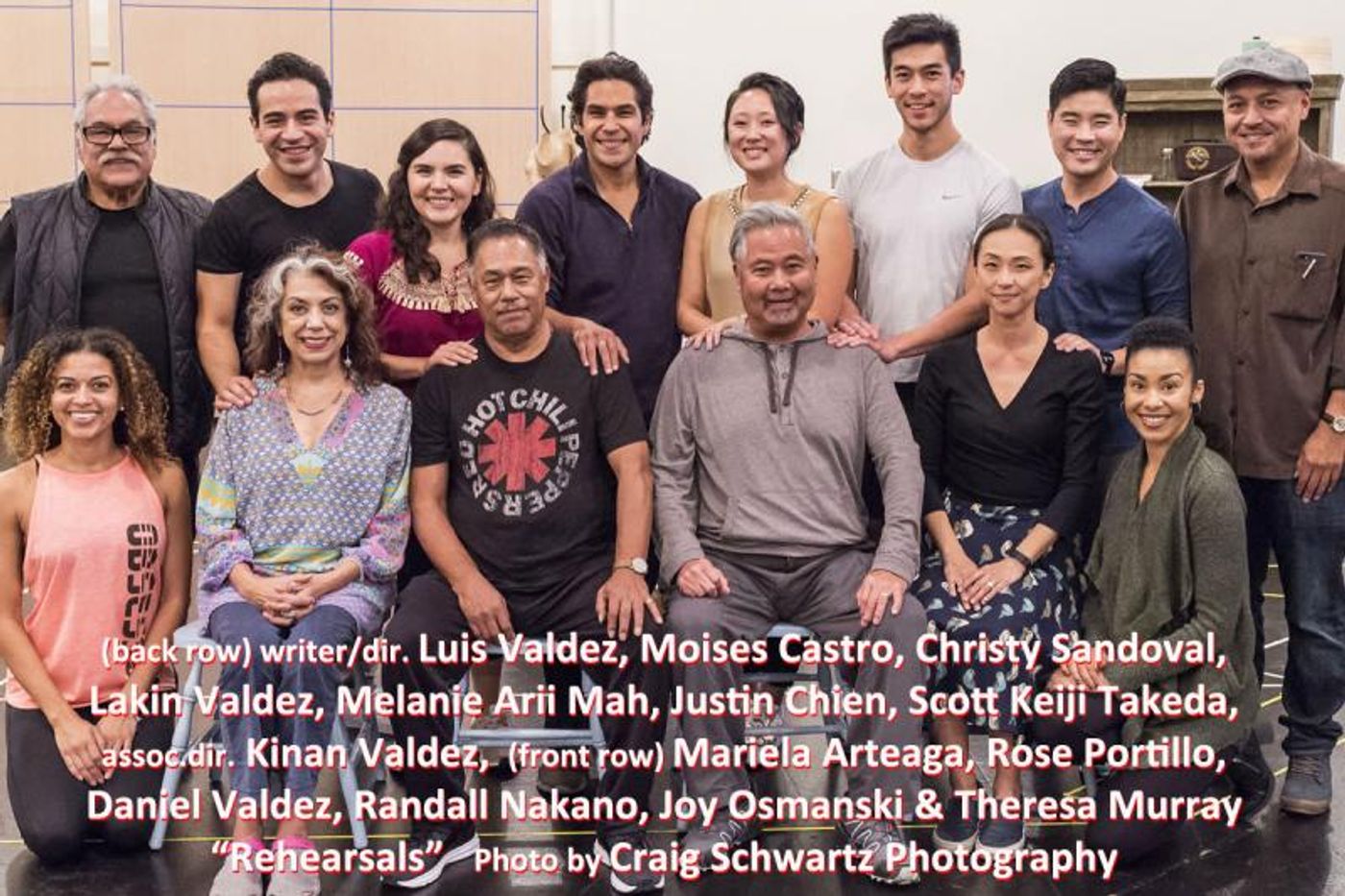 BU, LAMDA, and SFCM cared for me as an individual and I left each institution fulfilled and excited to continue to learn. I had teachers who continued to push me even though at times I felt like I was barely above water. I am the type of person who needs brutally honest feedback. I'm not afraid of being called out. I had teachers who respected that. The focus of each school differed in their histories and philosophies; SFCM taught me how to care for and use my voice as an instrument; LAMDA honed my classical skills, Shakespeare in particular; and BU was where I grew to be an actor through physical, emotional and intellectual exploration. I had never taken theater classes of this caliber and I was thrown into it from day one. It was the first time I felt like I was amidst chaos but was confident I could succeed and enjoy the unknown journey.
BU, LAMDA, and SFCM cared for me as an individual and I left each institution fulfilled and excited to continue to learn. I had teachers who continued to push me even though at times I felt like I was barely above water. I am the type of person who needs brutally honest feedback. I'm not afraid of being called out. I had teachers who respected that. The focus of each school differed in their histories and philosophies; SFCM taught me how to care for and use my voice as an instrument; LAMDA honed my classical skills, Shakespeare in particular; and BU was where I grew to be an actor through physical, emotional and intellectual exploration. I had never taken theater classes of this caliber and I was thrown into it from day one. It was the first time I felt like I was amidst chaos but was confident I could succeed and enjoy the unknown journey.
Any unusual or unexpected audience reactions you remember from your previous stints as Teruko?
I am always taken aback at how many audience members, regardless of age, tell us that they had no idea that the Japanese were put into concentration camps and/or that the conditions and experience were so heartless and unrelenting. It highlights the cycle of the United States continuing to make inhumane mistakes and cover up injustices.
What would you love the Taper audiences to leave with after VALLEY OF THE HEART's curtain call?
I would love for audiences to leave our show thinking. Whether they like, dislike, agree or disagree with the message and performance, if people are reflecting upon what they experienced, I've done my job.
Thank you again, Melanie! I look forward experiencing Luis Valdez' always unique take on forbidden love.
For ticket availability and show schedule through December 9, 2018; log onto www.centertheatregroup.org
Videos

